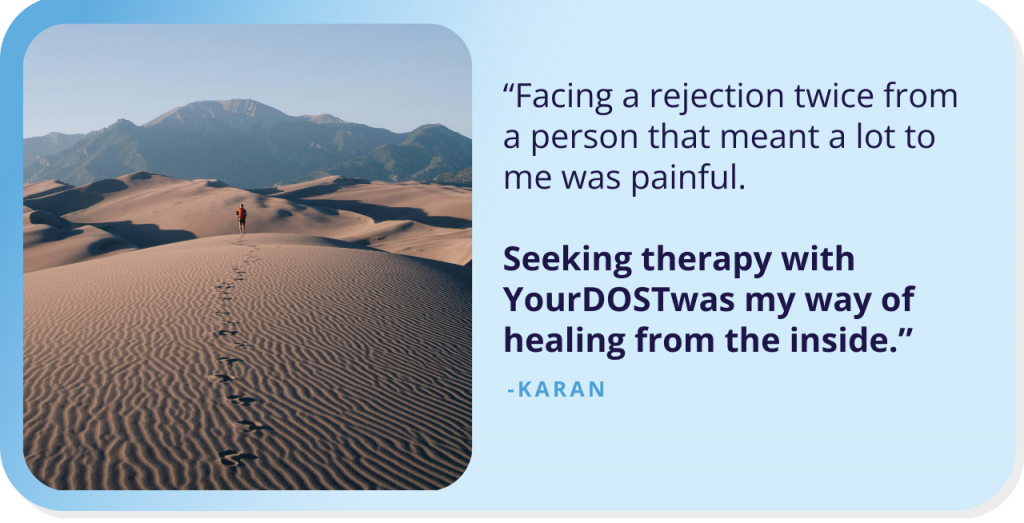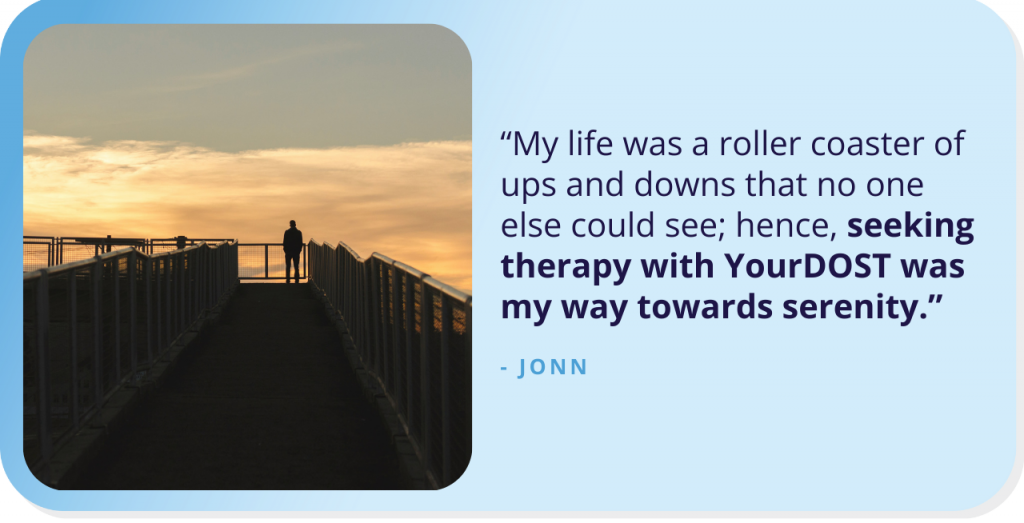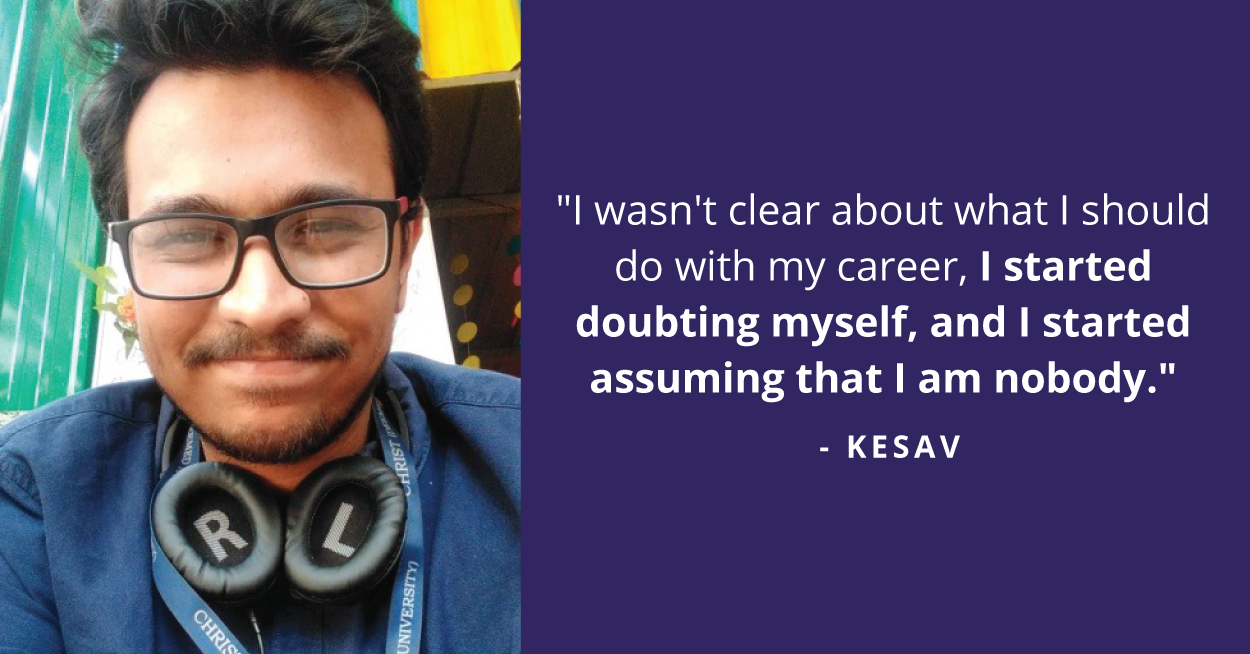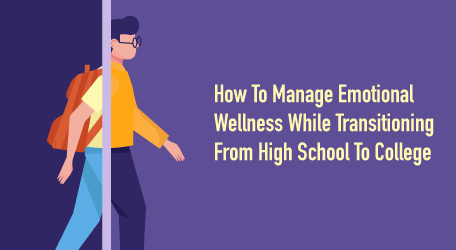
How To Manage Emotional Wellness While Transitioning From High School To College
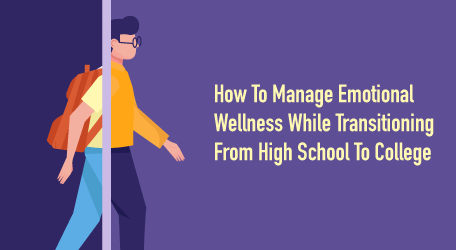
“The changes we dread most may contain our salvation.” — Barbara Kingsolver.
The world is becoming more competitive by the day, and staying in the competition can become complicated with time, especially if we choose to ignore the mental health of students who transition. College can be a new environment for students as they meet people from various backgrounds and cultural setups. At university, the study load increases considerably, and there is a substantial shift towards greater independence in learning.
However, shifting to a disciplined routine, making an impression, meeting college expectations, bonding with classmates, and other such activities may often worry them. According to a survey carried out by the National Sample Survey Organization, 10% of school-going children in India experience mental health challenges. This statistic underscores the importance of addressing mental health issues during the transition to college.
Accepting change can be tricky, and we must deal with it constantly. However, it’s not unattainable and provides us with perspectives on our areas for improvement.
What Are Some Challenges That Students Face?
Indian students are facing mental health challenges, with one in six teenagers experiencing depression. The transition to college heightens stress, anxiety, and depression. The pandemic has worsened these challenges, with increased rates of mental health disorders reported.
This lack of preparedness can manifest in various ways, including academic, social, and mental health challenges. For instance, the stress of adjusting to a higher academic workload can contribute to mental health issues among college students.
How can this be addressed?
Students who graduate from high school into college are usually overwhelmed as they will have to interact with a larger crowd, especially with people from different cultural backgrounds. Initially, this might not feel all that welcoming, and they will depend on college administrations and professors for ground-level support.
Here is what colleges can do:
- Normalize mental health conversations: It’s crucial to support your college student with anxiety by actively listening, offering emotional support, and encouraging healthy coping. Colleges with integrated mental health awareness programs saw a 15-20% improvement in students’ academic performance. These programs not only provide a safety net but also make students feel cared for and have an environment that enables them to normalise these conversations with faculties, peers and families
- Peer Support Programs: Peer support systems are a lifeline for students, helping them feel connected and less alone. These groups offer opportunities for students to share experiences, provide guidance, and reduce isolation. They create a sense of community that is invaluable during the college transition.
Measures For Students To Consider In Ensuring a Soft Landing At College:
- Aim for the bullseye: Have a defined career goal. This can help you not only enjoy your coursework but also feel motivated. Studies state that 60% of students reported that setting goals helped them organize their study schedules better and reduce procrastination. Psychologists suggest using tools such as personality tests to discover and pave a career path you like.
- Break out of your comfort zone: Research says that stepping out can increase our productivity, creativity, and ability to cope with change. Try taking on new responsibilities at college and enhancing your skills.
- Stay detail-oriented: Mastering various note-taking techniques can vastly improve your ability to absorb and recall lecture material. An excellent way to get started is to use the Cornell Method, Mind Mapping, Outlining, and Research Methodologies.
- Practice stress management techniques: Taking time out and rehearsing deep breathing, meditation, and yoga help boost your mood and improve your health. Utilize campus resources like counseling centres, which can provide professional assistance. Join support groups where you can share experiences and strategies with peers, which can also be beneficial.
These pro tips are just what you need to jumpstart your college experience, and the transition can be manageable! While transitions like these may seem like a roller-coaster, the correct set of resources and tools colleges present students with will help them have a smooth ride. Change instils a new phase, promotes growth, and builds individuals into a better version of themselves.
Additionally, if you wish to help students with transition trouble and provide them guidance with time management and handling academic pressure, check out the help we offer from our versatile mental health professionals.

